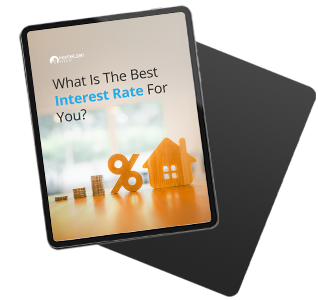Looking for the most competitive home loan interest rates in Australia?
Whether you’re buying your first home, refinancing, or investing, we compare the best rates from our panel of 60+ lenders.
Variable rate home loans
- Pros: Flexibility, often lower cost over time, free extra repayments
- Cons: Fluctuates with market conditions (e.g. RBA decisions).
- Best for: Borrowers who can handle rate rises or plan to refinance soon.
- Pros: Lock in your rate and repayments for 1–5 years.
- Cons: Break fees, limited features (e.g. no offset in most cases).
- Best for: Budget-conscious borrowers wanting predictability.
- Best of both worlds: Lock in part of your loan and keep the rest variable.
- Customisable: You can choose the percentage of fixed vs variable.
| Loan Category | Interest Rate | Comparison Rate* | Contact Us |
|---|---|---|---|
| $250,000 or above | 5.18% | 5.38% | Apply Now |
| $500,000 or above | 5.18% | 5.38% | Apply Now |
| $1,000,000 or above | 5.18% | 5.38% | Apply Now |
Fixed rate home loans
| Fixed Loan Term | Interest Rate | Comparison Rate* | Contact Us |
|---|---|---|---|
| 1 year fixed | 5.09% | 5.84% | Apply Now |
| 2 year fixed | 4.79% | 5.74% | Apply Now |
| 3 years fixed | 4.99% | 5.73% | Apply Now |
| 4 years fixed | 5.29% | 5.50% | Apply Now |
| 5 years fixed | 5.29% | 5.49% | Apply Now |
| 10 years fixed | 6.99% | 7.59% | Apply Now |
| Interest in advance | 5.29% | 5.89% | Apply Now |
Flexible fixed interest rates
| Flexible Fixed | Interest Rate | Comparison Rate* | Contact Us |
|---|---|---|---|
| 3 yrs flexible fixed | 5.19% | 5.79% | Apply Now |
| 5 yrs flexible fixed | 5.60% | 6.20% | Apply Now |
Which Interest Rate To Settle For?
Your Guide To Finding The Interest Rate That’s Your Best Match

Specialist loans
Non-resident mortgages
| Loan Category | Interest Rate | Comparison Rate* | Contact Us |
|---|---|---|---|
| Best variable rate | 5.54% | 6.14% | Apply Now |
| Best 3 yrs fixed rate | 5.19% | 8.20% | Apply Now |
SMSF mortgages
| Loan Category | Interest Rate | Comparison Rate* | Contact Us |
|---|---|---|---|
| Variable SMSF loan | 6.19% | 6.79% | Apply Now |
| 3 yrs fixed SMSF | 6.34% | 6.94% | Apply Now |
| 5 yrs fixed SMSF | 6.44% | 7.04% | Apply Now |
Low doc home loans
| Low Doc Loans | Interest Rate | Comparison Rate* | Contact Us |
|---|---|---|---|
| 60% low doc loan | 5.99% | 6.59% | Apply Now |
| 80% low doc loan | 6.19% | 6.79% | Apply Now |
| 3 yrs fixed low doc | 6.39% | 6.99% | Apply Now |
| 5 yrs fixed low doc | 6.69% | 7.29% | Apply Now |
Reference rates
Reserve Bank of Australia (RBA)
| Loan Category | Interest Rate | |
|---|---|---|
| Current RBA cash rate | 3.60% | on 1/4/2025 |
| Last RBA rate change | 3.60% | on 1/4/2025 (the cash rate was held) |
Standard variable interest rates
| Loan Category | Interest Rate | Comparison Rate* | Contact Us |
|---|---|---|---|
| Average std var rate | 8.24% | N/A | Apply Now |
| CBA std var rate | 8.30% | 8.90% | Apply Now |
| WBC std var rate | 8.23% | 8.83% | Apply Now |
| ANZ std var rate | 8.14% | 8.74% | Apply Now |
| NAB std var rate | 8.27% | 8.87% | Apply Now |
*WARNING: This comparison rate is true only for the examples given and may not include all fees and charges. Different terms, fees or other loan amounts might result in a different comparison rate. Each comparison rate is calculated based on $150,000 over 25 years for a secured loan.
Need Help Choosing the Right Rate?
We work with over 50 lenders including big banks and specialist lenders to find the deal that suits you, not the bank. Call us on 1300 889 743 or enquire online and get personalised support within 24 hours.
